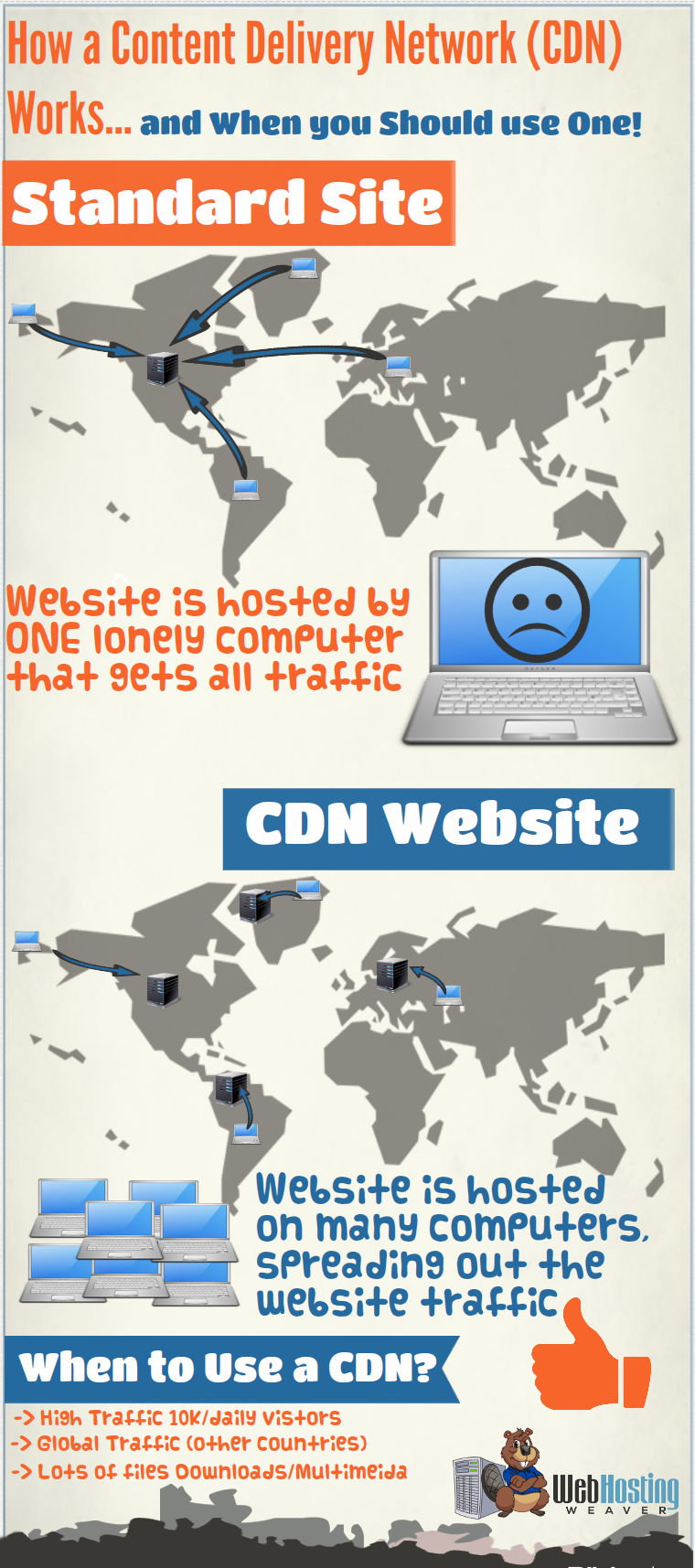Even though more than half of all content online is already being delivered via Content Delivery Networks (CDNs), most site owners are still unclear how they work or whether they need to be using one.

Once you have optimized your landing pages for the best load times you can get, if you want to further reduce how long it takes for your pages to load, it is time to look into using a CDN.
How Does a CDN Work?
The first thing to know is that if you want to use a CDN, it is not complicated to get started. The companies that offer them manage all the technical details. The only thing the site owner needs to do is point their domain name to the CDN instead of to the server where their site currently resides.
This makes it fast and simple to start using a CDN. You should know just a little bit about how a CDN works. Instead of your visitor receiving all of your content from your main server, they can receive some of it from the closest location your new CDN provides.
Most CDNs have many locations around the world. By sending your content from the location closest to your visitor, the time it takes to download can be shortened. This is important to keeping your visitors happy and to getting Google to rank your site higher.
If you want to know all the details about how CDNs work, you need to start with the basics, like CDN architecture and caching. This infographic is a very simple representation of how a Content Delivery Network (CDN) works:
 Source: How a Content Delivery Network (CDN) Works
Source: How a Content Delivery Network (CDN) Works
Do You Need a CDN?
If your site earns an income and it is important that it always be fast and available, a CDN should be part of your plan. It can protect you from bots and DDoS attacks and if one server goes down, the most popular pages of your site can automatically be available from a different server.
CDNs are most important to sites that have high daily traffic or are likely to have content go viral and overwhelm your server. Did you know that many hosting companies will take your site offline if you get more traffic than they allow?
This is bad, because if you finally get your 15 minutes of fame because someone famous mentions you or a story you wrote goes viral, having your site be unavailable means you will miss out on all those visitors!
Ask your hosting company what happens if you use more than your allotted bandwidth. Almost all of them will make your site unavailable just as you could have really benefited from going viral.
If you have a lot of traffic to very large files such as videos, a CDN can reduce your bandwidth costs. Remember, though, that if you don’t have a lot of visitors and you have many videos, you could end up actually using more bandwidth. This is because an entire video is transferred to the other server even if your visitor only watches a few seconds.
Do some calculations and understand how CDNs work before you start using one, particularly if you host video content. Videos that get watched every day will cost you less bandwidth because they will be on other servers, but videos that are rarely seen could get expensive to download.
Now that you understand what a CDN is and how it works, be sure to compare them. Each works in a slightly different way. Some are more focused on security while others make speed their primary goal. Choose the one that best fits your needs.
- Cracking the Success Code: 7 Tools Your Business Needs - January 3, 2023
- HOW TO: Make the Most of Youtube Video Description (from Basics to Advanced Tips) - November 20, 2022
- How to Get Out of Building Websites for Family and Friends - August 21, 2022
- People Love Stories: Why User-Generated Content Achieves Results - May 18, 2016
- Should Your Site Be Delivered by a CDN? - October 19, 2015
- Why Just Manage Social Media Marketing When You Can Measure? - January 26, 2015
- Mobile Leaving You Behind? Edit Webinars Into Viral Traffic Magnet Videos - November 13, 2014
- Online Meetings and Web Conferences Show Your Personality - September 10, 2014
